SUMMARY
This is AI generated summarization, which may have errors. For context, always refer to the full article.
![[OPINION | Just Saying] EDSA had to happen](https://www.rappler.com/tachyon/2021/02/tl-edsa-not-yellow-1280.jpg)
In early 1986, there seemed to be no end in sight. The dictator Ferdinand E. Marcos seemed to perpetually rule the Philippines. He ordered a snap election on February 7, 1986. It was rigged in his favor.
Prior to that election, he put in place all the necessary laws and decrees to make himself virtually a king – and a despotic one. Amendment Numbers 5 and 6 contained in his 1973 martial law Constitution gave him the power to legislate in addition to his power to execute the laws. This allowed him to churn up, amend, and repeal “laws of the land” as often as he wanted, depending on his whim. His power to be the sole authority to determine, select, and appoint magistrates made judicial independence an illusion.
Moreover, Marcos’ martial law Constitution empowered him to designate any of his chosen government officials to issue warrants of arrest against people and to search and seize their properties without probable cause determined by a judge. He used this effectively, jailing his critics, including students, businessmen, politicians, priests, nuns, imams, journalists, and just anyone who dared to question him. Even without actual rebellion and invasion, he could declare martial law and suspend the writ of habeas corpus – thereby incarcerating anyone without charge and trial – for as long as he wanted. He controlled the military by making his relative its boss. And he did this also with the national police.
He was seen in extravagant ceremonies insensitive to the unabated poverty around the country. There was just too much hypocrisy. And he seemed to love it.
Finally, that Marcos Constitution would have allowed the dictator to be legally untouchable, providing for his own immunity – during and after his term – indeed forever – from civil, criminal, and administrative liability and prosecution. It provided that “the President shall be immune from suit during his tenure. Thereafter, no suit whatsoever shall lie for official acts done by him or by others pursuant to his specific orders during his tenure.” And because, by presidential decree, he can, without hindrance, easily legislate any of his acts – including dubious and illegal ones – as “official acts,” the door for impunity was always open for him. The martial law Constitution entrenched provisions that allowed Marcos to be God-like infallible. There was no accountability to the Filipino people.
Had he continued to be President, and his martial law Constitution not been abrogated, he would not have experienced the fate of Corazon Aquino, Fidel Ramos, Joseph Estrada, Gloria Macapagal Arroyo, and Benigno Aquino III, who were/are made respondents in preliminary investigations or accused in criminal cases (meritorious or otherwise) filed against them after their respective terms.
On February 25, 1986, there was no choice but for the people to unceremoniously remove him from office. And it was a decisive move. “People Power,” it was called. The world marveled at the courage of the Filipino nation. He escaped to Hawaii.
In the aftermath of the ouster, the monstrous damage to the country of Ferdinand Marcos’ regime was revealed. The Presidential Commission on Good Government (PCGG) was created for “the recovery of all ill-gotten wealth accumulated by former President Ferdinand E. Marcos, his immediate family, relatives, subordinates, and close associates, whether located in the Philippines or abroad.” (Executive Order No. 1, 1986)
About P170 billion in ill-gotten wealth (assets, monies, and properties) had already been recovered by the PCGG. And the PCGG is still trying to recover millions, if not billions more. This theft can be considered the grandest larceny in Philippine history.
And no less than a law, Republic Act No. 10368, acknowledges that the Marcos regime was one of the darkest periods in Philippine history, requiring justice for all those who were its victims. It “declared the policy of the State to recognize the heroism and sacrifices of all Filipinos who were victims of summary execution, torture, enforced or involuntary disappearance, and other gross human rights violations committed during the regime of former President Ferdinand E. Marcos, covering the period from September 21, 1972 to February 25, 1986 and restore the victims’ honor and dignity.”
Even the Supreme Court characterized Ferdinand E. Marcos’ regime as a a “dictatorship.” (Cocofed vs. PCGG G.R. No. 75713). The highest tribunal even said that the case of Marcos, “a dictator forced out of office and into exile after causing 20 years of political, economic, and social havoc in the country, and within the short space of 3 years seeks to return, is in a class by itself.” (Marcos vs. Manglapus G.R. No. 8821)
History has already judged the Marcos regime. No less than the 3 great branches of government – the executive, the legislature, and the judiciary – had expressed the horror of that era. Any rosy narrative of that period is pure baseless revisionism.
February 25 must be remembered by all of us. It was historic. As we heard the news that the dictator Marcos left, we rejoiced. Personally, I thought of Teotimo Tantiado, a peasant worker and a friend who, on the night of April 10, 1978 was arrested at the Loyola House of Studies in Quezon City in a raid conducted by the dreaded Metrocom – the Marcos “Gestapo” at that time. There were reports that Teotimo was tortured and eventually died for not naming his “accomplices.” For all I know, he might have saved my life and many others who were in the meeting earlier that day two hours before the raid. He is a hero.
Indeed, February 25 is a special day to remember Teotimo and all those who sacrificed their lives fighting the Marcos dictatorship so that we may have the freedom we savor today – though, to many, imperiled it may be. We must at all costs preserve that freedom.
While it may be easy to express disappointment and feel disheartened – EITHER because we see signs of a “creeping” autocracy in our midst seemingly gaining strength and threatening to reemerge with greater greed for power, OR because we feel betrayed by people who took office after the Marcos dictatorship but failed to live up to the ideals of honor, integrity, honesty, and love of country that we felt in EDSA – let us remember that our duty to make our country good again did not end when People Power happened 35 years ago.
The deaths of Teotimo and all the victims of martial law remind us that the duty to make sure there will be no need for another People Power in order to protect our rights lies in each and every one of us.
And this we must do with unwavering commitment much like the lyrics of our national anthem – “ang mamatay nang dahil sa iyo.” This is a lifetime commitment we all share and should remind ourselves when we remember and honor what happened on February 25, 1986.
EDSA was not Cory Aquino. It was justice and liberty for all. It was an awakening that our cherished freedoms will always be threatened if we do not fight for them. The peaceful struggle continues. – Rappler.com
Mel Sta Maria is dean of the Far Eastern University (FEU) Institute of Law. He teaches law at FEU and the Ateneo School of Law, hosts shows on both radio and Youtube, and has authored several books on law, politics, and current events.
Add a comment
How does this make you feel?
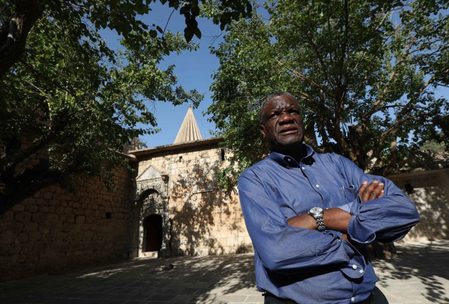

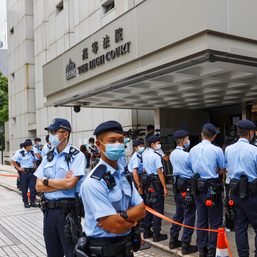
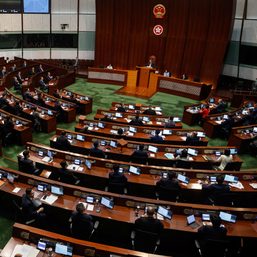


![[Just Saying] Marcos: A flat response, a missed opportunity](https://www.rappler.com/tachyon/2024/04/tl-marcos-flat-response-april-16-2024.jpg?resize=257%2C257&crop=277px%2C0px%2C720px%2C720px)
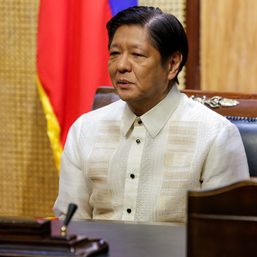

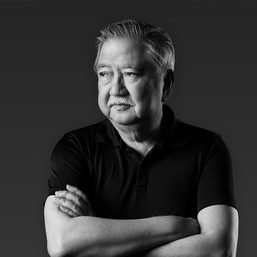
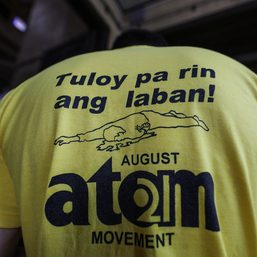
There are no comments yet. Add your comment to start the conversation.